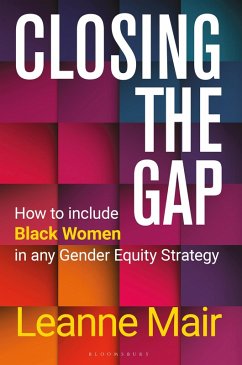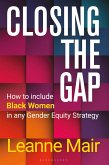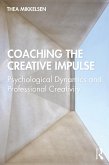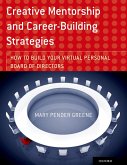A clear and accessible framework to accelerate your organization's gender diversity, equity and inclusion efforts in relation to the career development of Black women.
Why are gender equality initiatives not helping all women equally? Why does there continue to be a lack of Black women in senior management and leadership? How can the mindsets and strategies of companies whose approach is to focus on gender first, and only then to look at race, be changed to become more intersectional and inclusive?
Closing the Gap serves to contextualize how companies unintentionally position Black women in situations where they cannot thrive or reach their full potential. It also shines a light on some of the subversive behaviours which further create tension in employer/employee relations, such as, the absence of a process to highlight issues without repercussions, whether overt or subtle. This exacerbates the one thing most companies are trying to prevent: Black women resigning, taking their unique skillset and experience with them. There hasn't been an explicit guide to understanding these invisible barriers and exactly how they can be recognised, understood and overcome ... until now.
In Closing the Gap, gender equity leader Leanne Mair focusses on how companies can accelerate their gender diversity, equity and inclusion efforts by identifying the blind spots that can often prevent Black women from reaching their full potential in the workplace. It provides a practical and accessible framework, detailing the current landscape, highlighting the key challenges and remedies, and bringing organisations closer to their goals of an inclusive and equitable culture.
Why are gender equality initiatives not helping all women equally? Why does there continue to be a lack of Black women in senior management and leadership? How can the mindsets and strategies of companies whose approach is to focus on gender first, and only then to look at race, be changed to become more intersectional and inclusive?
Closing the Gap serves to contextualize how companies unintentionally position Black women in situations where they cannot thrive or reach their full potential. It also shines a light on some of the subversive behaviours which further create tension in employer/employee relations, such as, the absence of a process to highlight issues without repercussions, whether overt or subtle. This exacerbates the one thing most companies are trying to prevent: Black women resigning, taking their unique skillset and experience with them. There hasn't been an explicit guide to understanding these invisible barriers and exactly how they can be recognised, understood and overcome ... until now.
In Closing the Gap, gender equity leader Leanne Mair focusses on how companies can accelerate their gender diversity, equity and inclusion efforts by identifying the blind spots that can often prevent Black women from reaching their full potential in the workplace. It provides a practical and accessible framework, detailing the current landscape, highlighting the key challenges and remedies, and bringing organisations closer to their goals of an inclusive and equitable culture.
My least favorite question from senior leaders is: what's the one thing I should do on DEI? Now I have an answer – read this book. Closing the Gap places Black women at the center of gender equity with authority grounded in deep research, lived experience and a capacity to implement inclusive solutions. All too often workplace programs and initiatives fail to deliver agency, leaving Black women either on the fringe or even excluded. Leanne Mair shows what changes are needed and how they can be made through her power of listening to many voices and synthesizing before writing, which is all too rare in a space where many talk first.









